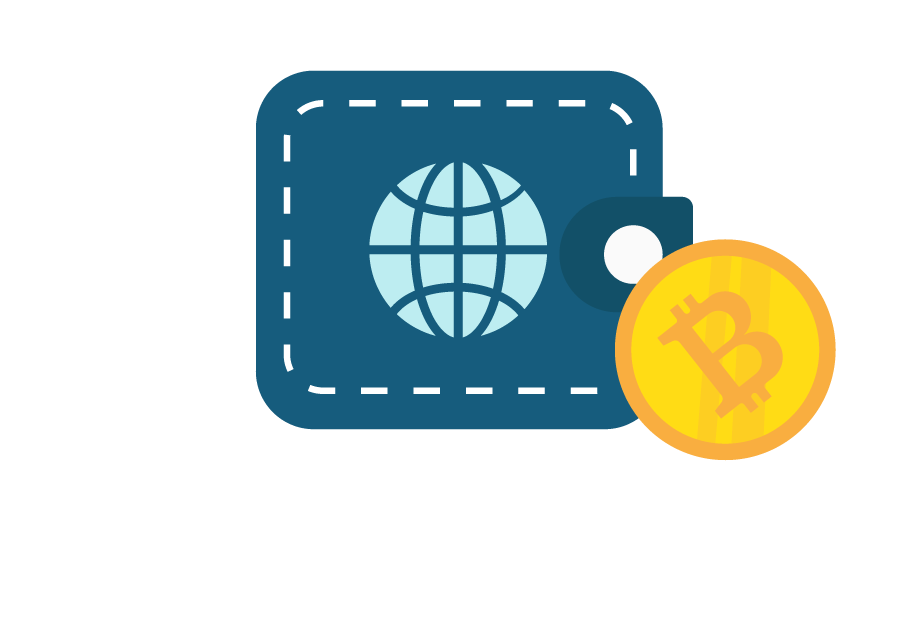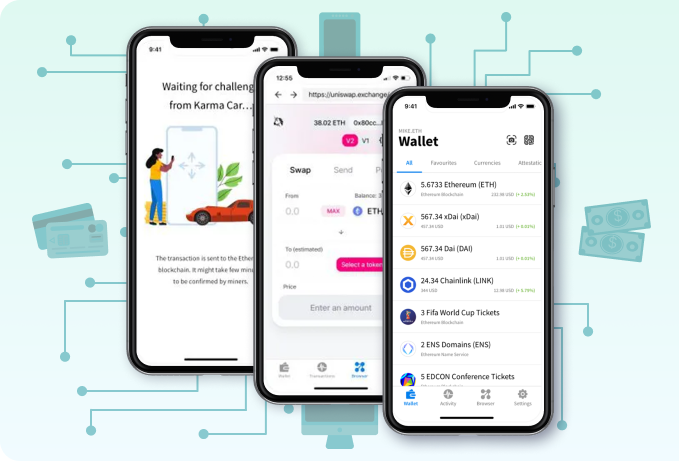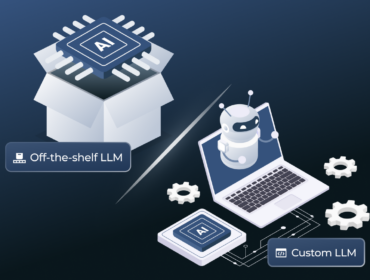The future market for cryptocurrency shows signs of promise as it has experienced remarkable growth over the last few years. As it continues to gain momentum, it simultaneously fortifies its position in the global financial arena, taking into account the ever-increasing price of major cryptocurrencies. There are nearly 81 million blockchain wallet users worldwide, according to Statista, and this number is rising.

Source: Statista on the number of blockchain wallet users worldwide
While searching for a crypto wallet in Google Play or the App Store, you’ll be in for a long scroll. And new mobile crypto wallets, as well as crypto traders, are popping up as we write this article. More than 7 billion people are likely to join the crypto market and ride the waves of volatility while Bitcoin and Ethereum continue to reach all-time highs.
What Is a Cryptocurrency Wallet?
A cryptocurrency wallet can be either an app or a physical device that allows users to store and manage their cryptocurrencies. A crypto wallet has two vital components – public and private keys. A public key is an address derived from a private key and used to send crypto coins to the wallet. And a private key is like the key to a bank safety deposit box. Anyone with the private key can access the cryptocurrency wallet and take control of its balance.
Crypto coins aren’t stored physically in a crypto wallet, unlike fiat coins. They exist on a blockchain, and a wallet allows you to manage them. This allows the crypto wallet to store addresses and gives users the ability to access and move their coins.
Types of Crypto Wallets
There are two primary types of wallets – hardware and software wallets. Hardware wallets are plug-in computer devices that are used to send, receive, and store crypto coins. They’re also called “cold” wallets. Software wallets are mobile apps, desktop programs, or browser extensions that serve a similar purpose. They’re also referred to as “hot” wallets.
Hardware wallets
A hardware wallet is a small physical device that stores crypto offline. As a rule, hardware wallets don’t save the keys on a computer or mobile device. The signing occurs when a user plugs the hardware device in.
Software wallets
A software wallet is a desktop or mobile software application that keeps private keys online. Each cryptocurrency should have its own software wallet, while hardware wallets support multiple currencies. There are several types of software wallets:
- Mobile wallets allow for sending and receiving crypto coins via a mobile device. Example: Blockchain.com wallet
- Desktop wallets work on a desktop or a laptop to provide access to crypto funds.
Example: Electrum wallet
- Web-based wallets work as a browser extension and allow for interacting with decentralized protocols and decentralized apps.
Example: MetaMask
Your choice of a crypto wallet depends on your use case and business needs. Though each wallet performs the same function: sending, storing, and receiving crypto coins.

Five Steps to Create a Crypto Wallet
Now let’s dive a little deeper into the crypto wallet development process. There are two ways to get your crypto wallet developed: you can either use ready-made templates and customize them to your needs, or you can develop your own custom crypto wallet that satisfies all your requirements.

Step 1: Validate your business idea
Every app starts with an idea. But the market has to have a demand for your app. Otherwise, your project isn’t going to be a success. When dealing with cryptocurrencies, try going through the latest challenges and seek out the proposed solutions. Don’t forget to research the market as there may already be solutions that solve the problem you’ve identified. If that’s the case, test the product and find a way to enhance it. This way, you can provide additional value to your users. Talk with your friends, family, colleagues, and even random strangers on Facebook or Reddit to find out what they like or hate when trading cryptos.
Step 2: Find your development partner
Once the market needs your app concept, it’s time to start development. The reality is that you will need a software development vendor to create a crypto wallet from scratch. It’s better to find a one-stop company where you can hire a team of programmers to develop your product from start to launch.
Step 3: Prototyping
Developing a fully-functioning app takes up time and resources. Moreover, blockchain-related coding is expensive, and its demand greatly exceeds the current supply of available developers. Luckily, there is a cheaper and faster way to test your app. It’s an interactive prototype. A prototype is a virtual representation of your app that is loaded with every screen a user can access. By the way, it’s a great tool for pitching your idea to investors and getting initial feedback from users.
Step 4: Develop an MVP
After testing your prototype, it’s time to turn your idea into code. That’s where your development team enters the battle. Developing a crypto wallet is a multi-stage process involving flawless cooperation between tech and non-tech team members. Starting with an MVP (Minimum Viable Product) that has basic functionality is always a good idea.
Step 5: Launch and maintenance
This is your final step in developing a crypto wallet. Now, you can upload your app to any app store and welcome new users. It’s time to switch your app’s servers to a production-ready environment and disconnect the wallet from the test blockchain.
Stress-test your servers before releasing your app. Get ready to update your app when you receive feedback from your first users.
Create a Crypto Wallet with Unicsoft
With the rising popularity of cryptocurrencies and the growing number of crypto traders, there is an increasing demand for secure crypto wallets. Building a crypto wallet or blockchain-based services from scratch requires specific knowledge and expertise.
At Unicsoft, we can help you build any blockchain-based app for your business. Our team knows how to leverage the power of blockchain and turn it into tangible benefits for your business. Contact us to discuss the details.






![How to Create a Crypto Wallet What’s the EU Artificial Intelligence Act and How to Comply? [Webinar]](https://unicsoft.com/wp-content/uploads/2024/03/Cover_1140_v1.1-370x280.png)

